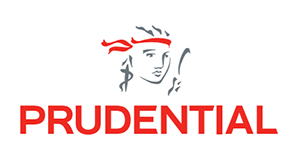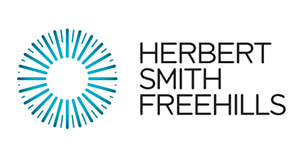CURRENT INVESTMENT CLIMATE
INTRODUCTION TO THE CURRENT INVESTMENT CLIMATE
At the time of publication, the peak of the crisis appears to have passed in the three worst affected countries, although a small number of cases continue to be reported in Sierra Leone.
A renewed focus on those sectors that were drivers of investment prior to the outbreak will be central to the economic recovery. In addition, new opportunities for investment have arisen by virtue of the GoSL’s Post-Ebola Recovery Strategy, which focuses on improving the social infrastructure already in place to support societies heavily impacted by the crisis and developing better systems and facilities to guard against a future outbreak.
The Post-Ebola Recovery Strategy
The Post-Ebola Recovery Strategy referred to throughout this Investor Guide has been developed by the Ministry of Finance and Economic Development. The Strategy aims to reduce the impact the crisis has had on the implementation of the A4P. The Strategy identifies plans for dealing with the shocks caused by the crisis, including the need to build a more robust healthcare system and develop integrated strategies involving reforms to related social and economic sectors that have a direct bearing on health outcomes, and highlights lessons learned from the outbreak, such as the need to strengthen regional cooperation.
In addition to the longer-term Strategy, the GoSL has developed a short-term Recovery and Transition Plan, which focuses on the nine months immediately following the end of the Ebola outbreak, to enable a rapid transition back to the trajectory set by the A4P. Detailed plans for priority sectors, such as health, education, social protection, agriculture and infrastructure, have been developed with support from DFID and McKinsey & Co.
Priority interventions include ensuring the safety of 40 hospitals and 1,300 primary healthcare facilities, bringing all children back to school and maintaining safe and active learning throughout the country, drawing over 100,000 subsistence farmers into the formal economy, helping SMEs re-establish themselves through affordable finance, developing infrastructure projects that strengthen the agriculture sector, supporting vulnerable groups and establishing sustainable social welfare, and building effective accountability systems.
GOSL RECOVERY AND TRANSITION PLAN
Rebound in Economic Activity
Sierra Leone’s economy has made significant progress since being declared Ebola transmission free in Q1 2016. Growth returned to positive territory in 2016 after the economy contracted by 21% in 2015. The economic recovery has been supported by a rebound in agricultural and mining output. Growth is likely to remain strong in 2017 on the back of resurgence in iron ore prices.
FDI flows have increased considerably largely on account of increased investments into the agriculture sector. Along with the need for further investment in healthcare, education, sanitation and energy, other sectors such as agriculture, construction, infrastructure and mining mentioned in the KEY SECTORS section offer significant opportunities for immediate investment.
Iron ore operations have resumed and significant investments are planned for the coming years, Shandong Iron and Steel Group, a Chinese steel firm operating in Sierra Leone, plans to invest US$700 million for the construction of processing plants to scale up its mining operations in the country. Diamond production has also recovered with diamond output as at H1-2016 up 24% from the same time a year earlier. One of the country’s leading mining companies, Sierra Rutile Ltd, which supplies roughly a fifth of the global demand for rutile, finalised a merger with Iluka Resources – the largest producer of zircon globally – in December 2016. Iluka plans to invest c.US$60 million over the next two years to improve its Sierra Leone operations. The company is also considering further expansion options to further increase rutile output.
Private sector credit growth has risen significantly with businesses having resumed normal operating activities. Domestic demand remains relatively weak but is expected to improve as the recovery momentum gains steam. Increasing investments and exports, coupled with ongoing macroeconomic reforms could see Sierra Leone return to being one of the region’s fastest growing economies.
INVESTMENT OPPORTUNITIES: HEALTH, EDUCATION AND SOCIAL SERVICES
There will be a stronger focus on investment in social infrastructure in Sierra Leone going forward. Investment demand in the near term will largely focus on the provision of basic services to a population recovering from the effects of Ebola. Investment in healthcare, education, sanitation and water are desperately needed.
Healthcare
At the time of publication, Sierra Leone has been declared Ebola transmission free. Further investment is needed to strengthen existing systems to deal with any further Ebola cases. Enhanced surveillance systems have been put in place to quickly identify any further ‘clusters’ of cases following 2 cases in Q1 2016. While healthcare systems have struggled to deal with Ebola, other disease and general healthcare needs have also received less attention. The World Health Organisation estimates that large numbers of malaria patients went untreated during the peak of the Ebola crisis given insufficient healthcare systems.
The GoSL’s increased focus on healthcare will drive investment opportunities in this area. There will be a great deal of investment potential in healthcare to expand and develop the current system to be better able to deal with a future epidemic quickly, as well as cope with healthcare needs on a much wider scale. Opportunities for investment include the establishment of special hospitals or clinics to provide HIV/AIDS health care, the provision of private psychiatry hospitals and facilities, manufacturing of drugs and medical equipment, and the establishment of a 24 hour ambulance service.
Education
Schools in Sierra Leone were closed for almost a year during the crisis. Schools re-opened in April 2015 however gaps in the infrastructure enabling children to return to school, along with a lack of amenities within schools, are hampering the delivery of education. With many children facing the need to work, extending access to education is hugely important.
The GoSL is focused on ensuring “fee free” access to primary education by 2018. In addition, targeted programmes to encourage attendance by the most marginalised students will be implemented.
Opportunities for investment include improving educational infrastructure in under-served communities and addressing gender, geographical and socio-economic disparities in access to education. The GoSL is also focused on improving tertiary education. PPPs in education will be encouraged.
Social Services and Basic Necessities
Water Aid estimates that even before the crisis, 40 per cent. of the population did not have access to safe water. Less than 20 per cent. of the country has adequate access to sanitation. Providing access to basic necessities such as clean water, food and sanitation will reduce the risk of a further outbreak.
Opportunities for investment include the construction of a new dam in Orugu to alleviate water scarcity, projects to increase the capacity of the Freetown Guma Valley dam, construction of bore holes in the provinces, and the development of water dams in seven major rivers.
RENEWED FOCUS ON TRADITIONAL GROWTH SECTORS
Mining Sector
The investment opportunities that existed before Ebola still exist. Mining activity is likely to pick up again now that travel restrictions are increasingly being relaxed. Activity should recover as export routes open up and mining companies recommence production. Sierra Leone’s second-largest iron ore producer, which employs 1,400 locals and contributes 10 per cent. of GDP, was affected during the peak of the crisis and this contributed to the growth slowdown in 2014.
At the time of publication, iron ore producers are reporting a recommencement of activity and iron ore exploration work. While opportunities still exist, continued low iron ore prices could weigh on any significant investment in the sector. With iron ore alone accounting for 25 per cent. of GDP and 50 per cent. of exports, development in this sector will be an important driver of growth.
Figure 1: Mining production was impacted
Mn/Tonnes
Agriculture
Numerous opportunities for investment in agriculture are outlined in KEY SECTORS. This sector is a key focus area in the GoSL’s Post-Ebola Recovery Strategy. Food security will be an ongoing concern in 2016 for countries worst-affected by Ebola. Much agricultural activity was put on hold during the crisis and food needs will be even more important now. Reduced harvesting due to labour and transport disruptions has had a wide impact.
The Food and Agricultural Organisation estimated in December that almost 150,000 people were severely food-insecure in Sierra Leone. This number was expected to have doubled by March 2015 to more than one million. Due to restrictions on movement and quarantine, many farmers were unable to plant crops and unable to harvest. Therefore, supporting food security and investment in agriculture will be essential in the coming months, with small-scale farming support being particularly important.
Infrastructure and Construction
Investment opportunities continue to exist in improving transportation networks and energy productivity to enable the free flow of goods and workers. Improving infrastructure through the projects outlined in the KEY SECTORS section will be critical to supporting further economic productivity and growth in the post-Ebola period.



